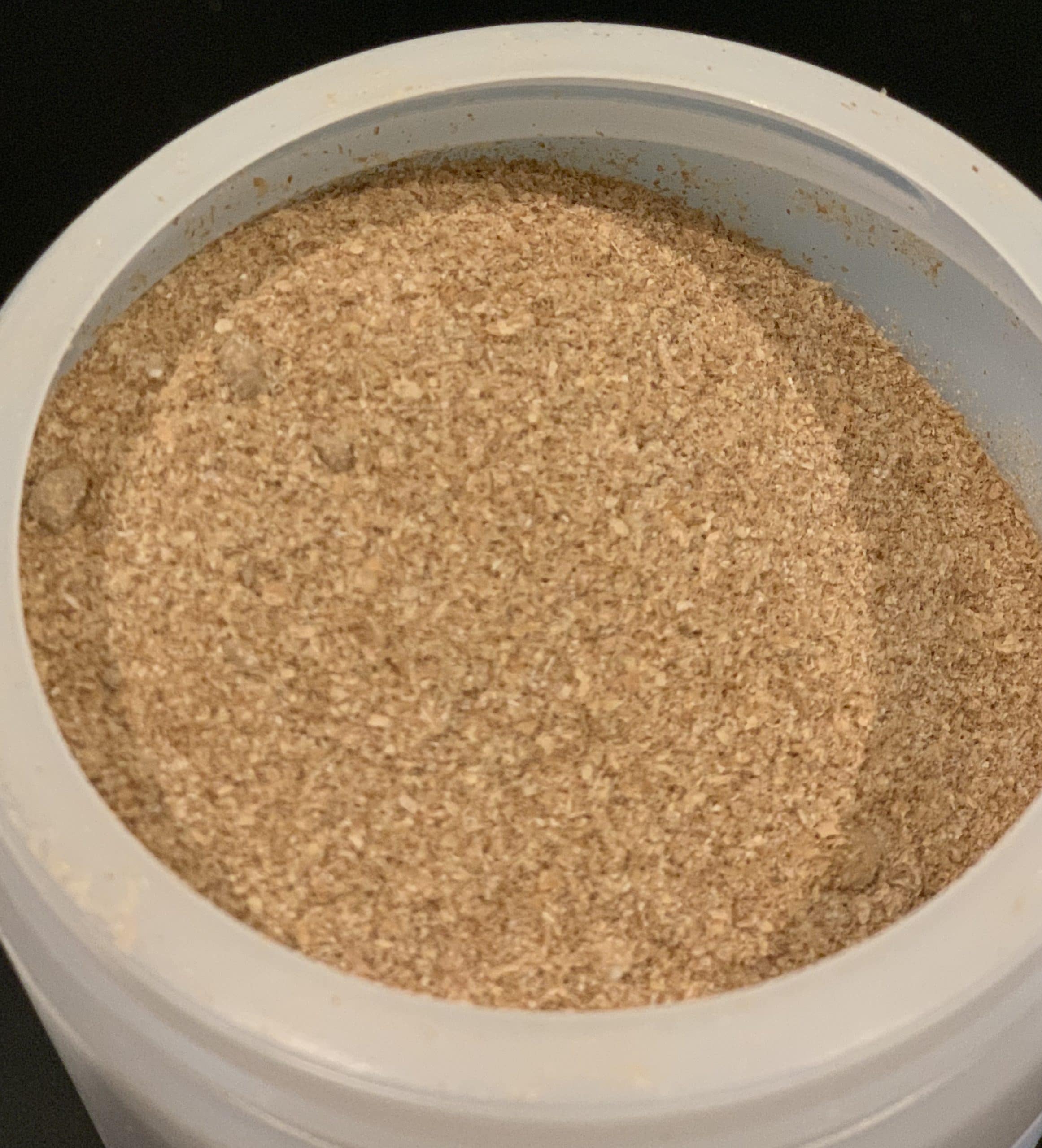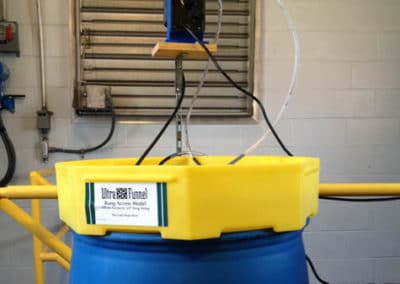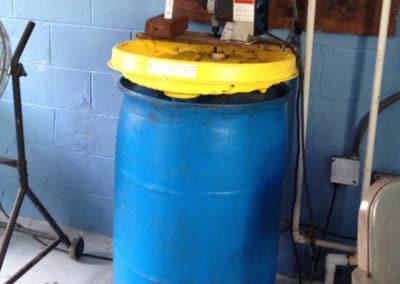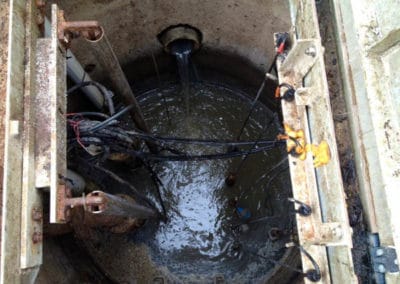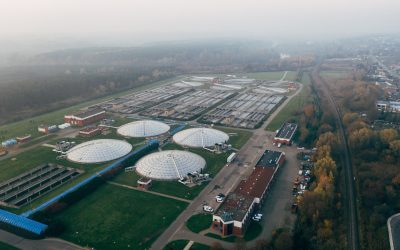CHM-HCT-5B
CHM-HCT
A concentrated, dry blend of stabilized bacterial spores and micronutrients formulated for use in the degradation of petroleum based hydrocarbons.
Advantages
Refinery wastewater contains petroleum hydrocarbons and nonpetroleum organic wastes. For this reason, Chemtech’s CHM-HCT-5B
contains a synergistic blend of petroleum degrading and organic waste degrading microbial strains.
Each strain in CHM-HCT-5B is selected to work under diverse environmental conditions and provide the most complete digestion of petroleum and petroleum degradation byproducts.
CHM-HCT-5B contains proven petroleum degrading strains. As shown in the two graphs on the right, gas chromatograph analysis confirmed that these strains metabolize hydrocarbon products such as gasoline, oil, diesel, and BTEX (Benzene, Toluene, Ethylbenzene, and Xylene).
The bacterial cultures in this blend are also beneficial in treating soil contaminated with hydrocarbons. Soil treatments can be spray applied or tilled into the contaminated soil. The addition of nutrients in soil applications to balance the system often shows increased activity.
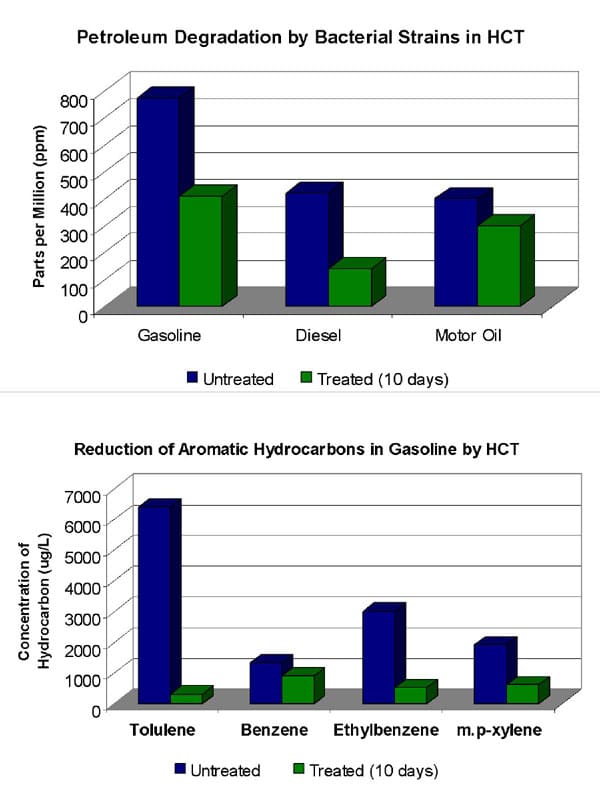
Applications
- Petroleum contaminated wastewater
- Marine bilges
- Car/Truck washes
- Soil remediation
Product Profile
These bacteria are stabilized to ensure long-term stability and extended shelf-life
- Multiple Bacillus Species
- Amylase, Protease, Lipase, Esterase, Urease, Cellulase, Xylanase, and a series of Hydrocarbon degrading enzymes
- Naturally occurring, nonengineered
- Aerobes and facultative anaerobes
- Highly motile
- Positive chemotaxis
- 100% stabilized bacterial spores
HCT Specifications
Guaranteed Minimum Bacterial Concentration:
5 billion CFU/g (1.8 Trillion CFU/pound)
Typical Properties
| Appearance | dry, tan, free-flowing powder |
| Shelf Life | one year from the date of manufacture |
Performance Properties
| Effective pH range | 5.0 – 10.0 |
| Effective Temperature Range | 40 – 130°F (5 – 55°C) |
| Bacterial Enzyme Production | Amylase, Protease, Lipase, Esterase, Urease, Cellulase, Xylanase, and a series of Hydrocarbon degrading enzymes |
Packaging
One pound water soluble packets in 25 pound pails or bulk powder 325 pound drums.
Storage and Handling
| Storage | Store in a cool, dry place |
| Handling | Wash hands thoroughly with warm, soapy water after handling |
Chemtech’s Microbial Products are the industry-leading odor control, bioaugmentation, solids degradation, and corrosion prevention solutions. For over 20 years, we are the trusted and preferred supplier for a wide range of industries worldwide, including food processing, wastewater treatment, paper and pulp, refinery, and agriculture.
Safe, Natural Product
Microbe Lift O/C formula is a safe, natural product derived from organic matter consisting of natural soil constituents, including humate salts, humic acids, lignin matter and extractions of highly humified organic matters – powerful components that capture odorous compounds and interrupt their corrosive reactions, and enhance biological activities for solids degradation, reducing Total suspended solids (TSS) and Biochemical oxygen demand (BOD) levels. A township in Pennsylvania was able to keep their water safe by using Microbe Life
Effective, Environmentally Friendly, & Economical Solution
In industrial and municipal wastewater and sewage treatment plants, pumping stations, septic tanks, and grease traps, Chemtech’s Microbial Products are an effective, environmentally friendly, and economical solution used for the digestion of fats, oils, and grease, as well as the control and reduction of a wide range of odorous compounds, including hydrogen sulfide, mercaptans and ammonia, and their resulting corrosive effects.
What's in our product?
Improves Efficiency
Safe for Personnel to handle
Choose A Product That Best Fits
Your Wastewater Application
| PRODUCT | LIFT STATIONS | TREATMENT PLANTS | GREASE TRAPS | PONDS & LAGOONS |
|---|---|---|---|---|
| CHM-201 | X | X | - | - |
| CHM-200 | X | X | - | - |
| CHM-205 | X | X | - | - |
| CHM-207 | X | X | - | - |
| POND CLEAR | - | - | - | X |
| BIO BLOCK | X | - | X | - |
| SP7-BDO-10X | - | - | X | - |
View Our Product Photos
Get a Custom Quote
Fill out the form below.
6 Cheapest Wastewater Treatment Technologies
It’s natural to look for the cheapest wastewater treatment methods. While treatment is vital, you also have a budget to consider, so you need to think about how you can reduce the cost of your operations. Read on to learn more about how this can be achieved.
Wastewater Treatment Using Bacteria: What, Why, and How
Wastewater treatment is crucial across the country, providing residential communities and commercial operations with the services they need to function at their best. But what’s the role of bacteria in all of this? Bacteria wastewater treatment is making a real difference at facilities of all sizes.
All About Odor Control in Wastewater Treatment
Wastewater treatment odor control is about far more than keeping bad smells at bay. It’s about ensuring that local communities and nearby ecosystems are kept safe from toxic emissions, as well as giving onsite personnel a safe and pleasant place to work. This means it’s a crucial consideration.
